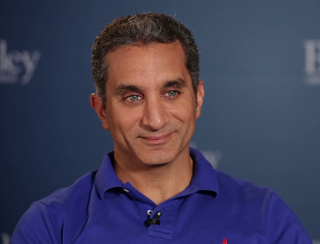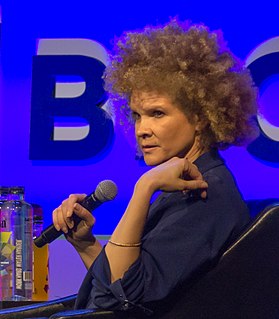A Quote by Diane Wakoski
American poetry is always about defining oneself individually,claiming one's right to be different and often to break taboos.
Related Quotes
Every field has its taboos. In algebraic geometry the taboos are (1) writing a draft that can be followed by anyone but two or three of one's closest friends, (2) claiming that a result has applications, (3) mentioning the word 'combinatorial,' and (4) claiming that algebraic geometry existed before Grothendieck (only some handwaving references to 'the Italians' are allowed provided they are not supported by specific references).
I didn't invent satire. I didn't come up with it. And it will continue to be a very powerful tool to disrupt political taboos and social taboos and religious taboos, because those taboos are always used to control and to curb people's way of creativity and thinking, by making them feel guilty because they want to make a change.
The question now becomes about defining your terms. What is literature? Unless we allow it to encompass the oral tradition from which it grew, which means taking it back to Homer and beyond, it demands the written word - poetry and prose. [Bob] Dylan is no slouch at the written word, both in its own right, and transcribed from his lyrics, which have often been acclaimed as poetry and may well stand up as such. But that is not his métier.
There's a sameness about American poetry that I don't
think represents the whole people. It represents a poetry
of the moment, a poetry of evasion, and I have problems
with this. I believe poetry has always been political, long
before poets had to deal with the page and white
space . . . it's natural.
I didn't ever consider poetry the province exclusively of English and American literature and I discovered a great amount in reading Polish poetry and other Eastern European poetry and reading Russian poetry and reading Latin American and Spanish poetry and I've always found models in those other poetries of poets who could help me on my path.
I'm educating myself more about world poetry. I know a lot about contemporary American poetry, so I felt I needed to learn more about figures like Borges, Akhmatova, Neruda, etc. I felt I needed a bigger lens to see poetry through. It really helps to see poetry as a world language, and not just something American.
Often poetry, especially the sort of poetry I write, is concerned with looking at the borders between the sensual and the spiritual and seeing them as divided, equivocal, that mystery somehow can break in to the ordinary. And we read poetry I think in part, to gain a sense of that intimacy with things that we can't understand that are unable to be understood but that buoy up our lives.
I was deeply moved by Richard Blanco's reading of his inaugural poem-a timely and elegant tribute to the great diversity of American experience. And now comes this fine meditation on his experience of coming to poetry, of making the poem and the months surrounding its making-a testament to the strength and significance of poetry in American culture, something not always seen or easily measured. Today Is For All of Us, One Today is a necessary intervention into the ongoing conversation about the role of poetry in public life.







































